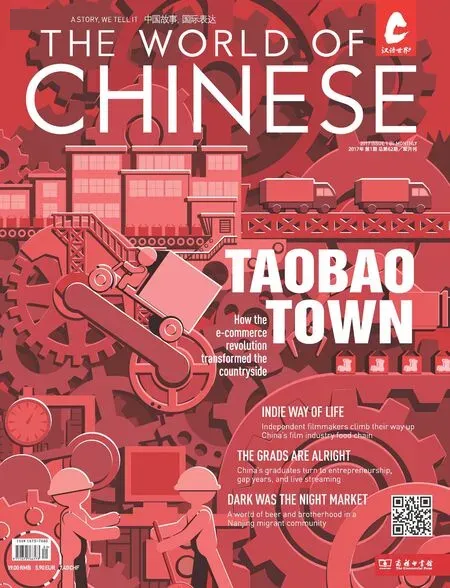“I know that maybe I am not pretty enough to be a live streamer, but honestly, I feel I am not smart enough to pass the civil service exam either. There is no easy work in the world, right?”
“I know that maybe I am not pretty enough to be a live streamer, but honestly, I feel I am not smart enough to pass the civil service exam either. There is no easy work in the world, right?”
For the parents of this generation, working for the government or in a state-owned company was the ideal career choice because it was a decent, stable job for life. While it seems that these positions are waning in popularity today, even fairly low-paying civil service jobs can sometimes see tens of thousands of applicants.
With more than 1.3 million people registering for the 2017 national civil service entrance exam, it’s hard to say that public service jobs aren’t in demand, but, at the same time, a total of 223 posts ended up with no applicants. The main causes may have been the high requirements and fi erce competition of civil service, but, in the eyes of many young people, stability isn’t nearly as important as prestige and cold hard cash.
Online jobs have become another key career avenue. WeChat stores, live-stream broadcasters, and daigou, who buy products overseas to resell online, are popular career choices. Li Jianing, a 21-year-old, who graduated last year from a college in Shenyang, Liaoning province, recently started a WeChat business selling teethwhitening items. She cultivates a well-developed WeChat presence with plenty of ads in the form ofphotos and videos. She is also learning to improve her makeup skills and planning to be a live streamer.
“My mom wants me to take the civil service entrance exam because she thinks it will be a stable, decent job. But I feel that it’s boring. In my opinion, any job can be decent. You work and you make a living,” says Li.“I want to do something that I am interested in and where I have more freedom.”
“I know that maybe I am not pretty enough to be a live streamer, but honestly, I feel I am not smart enough to pass the civil service exam either.
There is no easy work in the world, right?” Li adds. “But maybe I will take the provincial public service exam because ififail, my mom will have nothing to say.”
Taking a “gap year” is another option for “slow employment”graduates, and was Chinese youths’ fi fth most popular choice according to the QQ survey. Li Liang graduated in 2011 and took a gap year to travel around the country. During the trip he became interested in photography and, upon his return, opened his own photo studio.
Years later, more and more graduates are taking Li’s path. At the end of 2014, the China Youth Development Foundation, a national public foundation based in Beijing, set up The China Gap Year Foundation to help to promote the idea of the gap year as a legitimate post-graduation choice. It is the first domestic organization to provide fi nancial support for 18 to 28-yearold students to pursue gap year activities in China or internationally for three months to one year.
“Such experience has indeed influenced young people’s career decisions. Some find interest in new fi elds and see more possibilities in their future careers. Others feel lost when they come back from their gap year, and find it difficult to get their life back on track,” says Gu Zhengzheng, a spokesperson for the Gap Year Foundation. “It brings different things to different people, but generally it’s positive.”
Gu says that in 2015, there were around 100 applicants, and in 2016, the number increased to more than 200, but it’s still below their expectations. The gap year is not yet very popular in China, and many worry that it causes young people to miss job opportunities, or that it is an excuse for slacking. Gu disagrees. “The [gap year] concept is ahead of the level of [China’s] social development, even a little bit against tradition,” she argues. “Many young people can’t gain approval from their family and face tremendous pressure. So far, it’s still just developing in a small crowd.”
The challenges faced by the new generation of grads are new, but so too are the opportunities. Be they willful entrepreneurs, hopeful live streamers, dutiful would-be civil servants, or wishful gap year students, it’s undeniable that even as the“slow economy” grads grapple with societal pressures today, their values toward work-life balance will shape the experience of a future generation who will look to them as career trailblazers and employers—when they finally get there.

